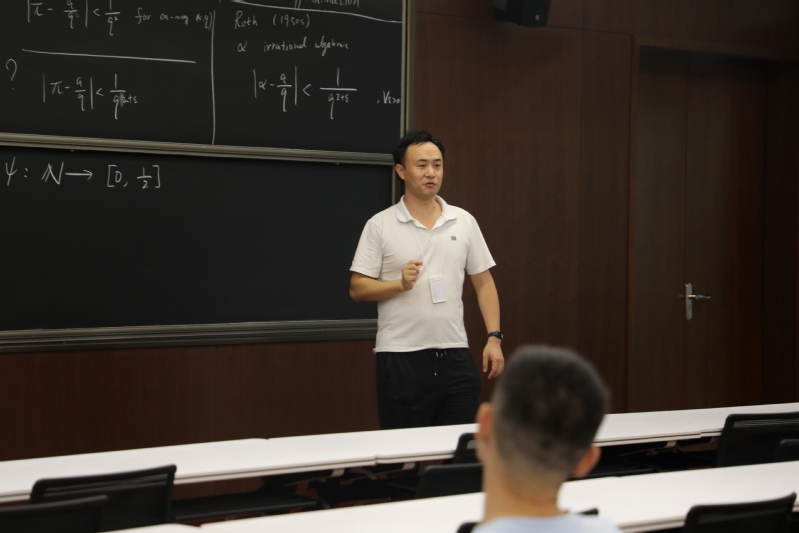Seminar by Daodao Yang: 100 years of metric Diophantine approximation



Time: September 4, Wednesday, 16:00-17:00
Venue: Lecture Hall
Speaker: Daodao Yang (Université de Montréal)
Abstract: The metric theory of Diophantine approximation investigates whether typical real numbers can be well approximated by rational numbers. In 1924, Khintchine proposed the first 0-1 law in metric Diophantine approximation: assuming that the approximation function has a certain monotonicity, this law provides a necessary and sufficient condition for typical real numbers to be well approximated by infinitely many rational numbers. In 1941, Duffin and Schaeffer attempted to generalize Khintchine's theorem without assuming that the approximation function has monotonicity. Their proposed new 0-1 law, known as the Duffin–Schaeffer conjecture, became a central problem in Diophantine approximation. After considerable efforts by many number theorists, the Duffin–Schaeffer conjecture was finally resolved by Koukoulopoulos and Maynard in 2019. A remaining challenge is to establish a quantitative law, similar to the strengthening of Khintchine's theorem by Erdős and Schmidt, to estimate the number of reduced fractions that can approximate the given real number sufficiently well. In 2022, Aistleitner, Borda and Hauke established a quantitative version of the Duffin–Schaeffer conjecture, but the error term they obtained only achieved a logarithmic power-saving. An open problem is to establish an asymptotic formula with a power-saving error term. In a recent joint work with Koukoulopoulos and Maynard, we prove a quantitative version of the Duffin–Schaeffer conjecture with an almost sharp error term.




